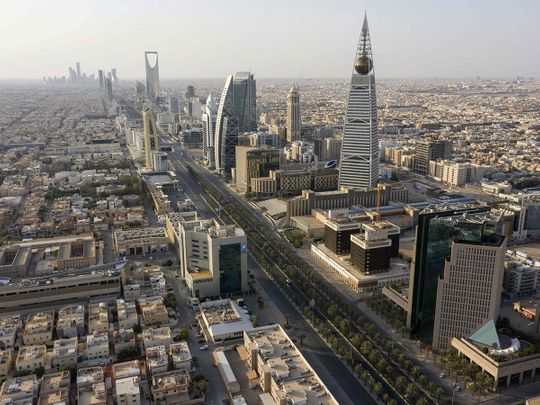
Saudis and residents alike have to confront the challenges to their pocketbooks ever since the VAT rate went from 5 per cent to 15 per cent on July 1 of this year. This was part of some drastic measures announced by the country’s finance minister who had previously foretold of some painful measures.
The toll from the extended spell coronavirus pandemic and the dramatic slump in global oil prices has had a severe impact on the kingdom’s financial outlook.
In early May, the minister was discussing the fallout from the effect of COVID-19 on the economy and warned all residents that the kingdom would have to take some actions that would be “painful, but for everyone’s benefit”.
“The kingdom hasn’t witnessed a crisis of this severity over the past decades,” he said. Actions taken so far to cut spending had not been enough, and “Saudi public finances will need more control and the journey ahead is long,” he added. The tax hike is indeed one of the painful measures that the residents of the country would have to deal with.
For years, it has been a free piggyback ride on the government’s shoulders. Now it is time for us to give back. So, what if it is through a tax increase?
Such a dire warning was enough to shelve most spending plans of residents and the immediate fallout from the minister’s statement was a slide in the local bourse.
But soon came the news that the VAT was going to be increased from July 1 and that tugged at the purse strings of most shoppers who had stayed kind to their wallets up to that point, purchasing only the extreme essentials such as food and household supplies.
In the short weeks before July 1, the kingdom experienced a mini economic boost as spending on luxury items and large household needs saw a big jump with shoppers wanting to avail the lower prices before the increase took its bite.
No cars for sale in showrooms
Cars, furniture, and essentials such as air conditioners, washers and dryers were quickly brought in to replace older ones and at a considerable saving of VAT.
In fact, one auto mall that had vehicle distributors from around the kingdom reported that it had no vehicles available in their showrooms, including high-end models such as Bentleys and Rolls-Royce.
To a populace long accustomed to no or very little taxes, this latest action was in sharp contrast to the annual grants and stipends that the government had provided over the years. For the country to remain on the path to a healthy economic recovery, battered as it was by oil prices and COVID-19, things had to change, and measures have to be painful in the short term so that everyone benefits in the longer span of time.
In the days following the austerity measures, it is expected that there would be some drop in commercial activity as people buckle down and stop making non-essential purchases. This in turn would have a down effect of a mini-recession with very little monetary activity. The people have to adjust their spending habits and lifestyles, which is a blessing in disguise.
The politics of waste must end
Undisciplined spending habits prevalent among many young Saudi households would have to be toned down or else they would face bleak financial outlooks. Many today are living beyond their means and availing of easily available credit. That would have to stop.
An economist said that “the politics of waste must end — they have to. It was a Gulf phenomenon of wasting — money was flowing and there was no accountability. Now the shock has come. We have to wake up, especially the people who are not working. We have to start doing things on our own, depend on our own selves. We have to get up and work, really work hard — produce in factories; clean up our own places. For years, it has been a free piggyback ride on the government’s shoulders. Now it is time for us to give back. So, what if it is through a tax increase?”
Saudis can take comfort in the fact that they are not alone in facing such financial challenges as the coronavirus has stifled almost all global economies, and countries are scrambling to find means to sustain their economic well-being in view of such hardships. In many countries, citizens are expected to shoulder the burden.
Some sacrifices are necessary along the way, and for Saudis, it is no exception.
— Tariq A. Al Maeena is a Saudi socio-political commentator. He lives in Jeddah, Saudi Arabia. Twitter: @talmaeena







